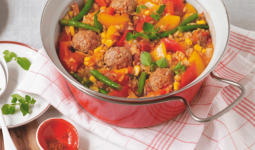No matter if you’re planning on serving white wine at a formal dinner party. When hosting an outdoor barbecue, you’ll need to ensure that you have the right bottle of white wine. However, most people don’t know that there are so many types of white wine.
What do you drink if you like white wine but don’t want to drink it? If your friends only drink white wine, how can you impress them at a dinner party? This list of substitutes for white wine will help you find out what to drink in different situations.
However, sometimes it can be hard to choose which one will best suit the occasion. Don’t worry! We created this list of substitutes for white wine to help you pick the correct type of wine for every experience.
1. Apple Juice
While apple juice may not be the first beverage that comes to mind when you think of wine, it can be a great substitute in a pinch. Here are reasons why apple juice is the perfect substitute for white wine on every occasion.
Nevertheless, when it comes to finding a white wine substitute, apple juice is a great option. It has a similar sweetness and can be used in red and white wine recipes.
Plus, it’s an excellent option for those looking for a non-alcoholic alternative. Just be sure to use unsweetened apple juice for the best results.
2. Chicken or Vegetable Broth
Chicken or vegetable broth can be used as a substitute for white wine in many recipes. The broth will add flavor to the dish without making it too heavy. When substituting broth for wine, use less than half the broth you would use for wine.
For instance, if a recipe calls for 1 cup of white wine, use only 1/2 cup of chicken broth. You can also substitute dry vermouth for white wine.
3. Lemon Juice
Lemon juice is a versatile ingredient that can substitute for white wine in several different dishes. Here are a few ideas to get you started. For a tart and tangy vinaigrette, replace the white wine in your recipe with an equal amount of lemon juice.
Moreover, to deglaze a pan after cooking chicken or fish, use lemon juice instead of white wine. Just be sure to add a little extra liquid to compensate for the lack of body that white wine would provide.
Also, in place of white wine in soup or risotto, use chicken or vegetable broth. This will still give you the desired level of acidity without adding any alcohol.
4. Apple Cider Vinegar
Apple cider vinegar can be used as a white wine substitute in many recipes. Its acidity is similar to that of white wine, making it a good choice for cooking. Plus, it’s a great way to flavor your food without adding alcohol.
Here are some tips for using apple cider vinegar as a white wine substitute. When cooking chicken or fish, use apple cider vinegar as a substitute for white wine. Add apple cider vinegar to soups and stews for an extra flavor boost.
Apple cider vinegar can be used to make salad dressings or marinades and to deglaze a pan instead of white wine.
5. Dry Vermouth
Dry vermouth is a type of fortified wine similar to white wine. It has a slightly bitter taste and is often used in cocktails. Dry vermouth can be used as a substitute for white wine in many recipes.
Notwithstanding, it can be used in place of white wine in a martini or other cocktails. It can also deglaze a pan or add flavor to a sauce. Sweet
6. Vermouth
Sweet vermouth is a type of fortified wine that is sweeter than dry vermouth. In cocktail making, it can replace an equal amount of sweetened lemon juice when no sour mix is available.
Vermouth is a fortified wine flavored with herbs and spices. It is a good substitute for white wine in recipes because it has a similar flavor profile to white wine.
7. Ginger Ale
We all know that wine is made from grapes. And while there are many different types of wines, they all have one common denominator. They’re made with fermented grape juice.
Yet, what happens when you don’t have any wine on hand and need a substitution? Luckily, there are a few things you can use in a pinch. Feel free to select substitutes for a white wine that will save the day.
8. Canned Mushroom Liquid
Canned mushroom liquid is a great way to add umami depth to dishes in place of white wine. It’s also a good choice if you’re looking for a non-alcoholic option. Moreover, check the label to ensure no added flavors could throw off your dish.
9. White Wine Vinegar
Did you know you can use white wine vinegar as a substitute for white wine? Add the same amount of vinegar to your dish as you would white wine. White wine vinegar has a slightly different taste than white wine.
But it will still add the same acidic component to your dish. If you’re looking for a non-alcoholic option,
10. Apple Cider Vinegar
Apple cider vinegar is a great substitute for white wine vinegar. Add the same amount to your dish as you would white wine.
Apple cider vinegar has a slightly different taste than white wine, but it will still add the same acidic component to your dish. Apple cider vinegar is an excellent drink because it contains nutrients and health benefits—including vitamin C!
11. Grape Juice
Grape juice is easily found at any grocery store and comes in various colors. White grape juice is an excellent substitute for white wine because it has a similar sweetness and acidity. If you’re looking for a non-alcoholic option, try sparkling grape juice.
On the other hand, it’s a refreshing substitute for white wine and is perfect for parties or special occasions. You’ll still get all the fruit flavor without the alcohol.
You can also use cranberry juice as a substitute for white wine, even though this might not be a favorite among people who don’t like cranberries.
In addition, it tastes perfect when combined with citrus flavors like lemon or lime. The tartness of the cranberry complements the sweet citrus flavor nicely.
12. Beer
While beer may not be the first beverage that comes to mind when pairing it with food, it can be a great substitute for white wine.
However, It has a wide range of flavors that can complement many different dishes, and it’s a refreshing alternative to wine.
13. Water
Start by pouring a small amount of water into the glass. You can always add more if needed. Tilt the glass and slowly swirl the water around, allowing it to coat the inside.
In addition, Smell the wine. Take a small sip and let it linger in your mouth for a few seconds before swallowing or spitting it out. Swish the wine around in your mouth, coating your tongue with it.
Finally, pay attention to the wine’s body, acidity, tannins, and flavor. Consider how long the aftertaste lingers.








